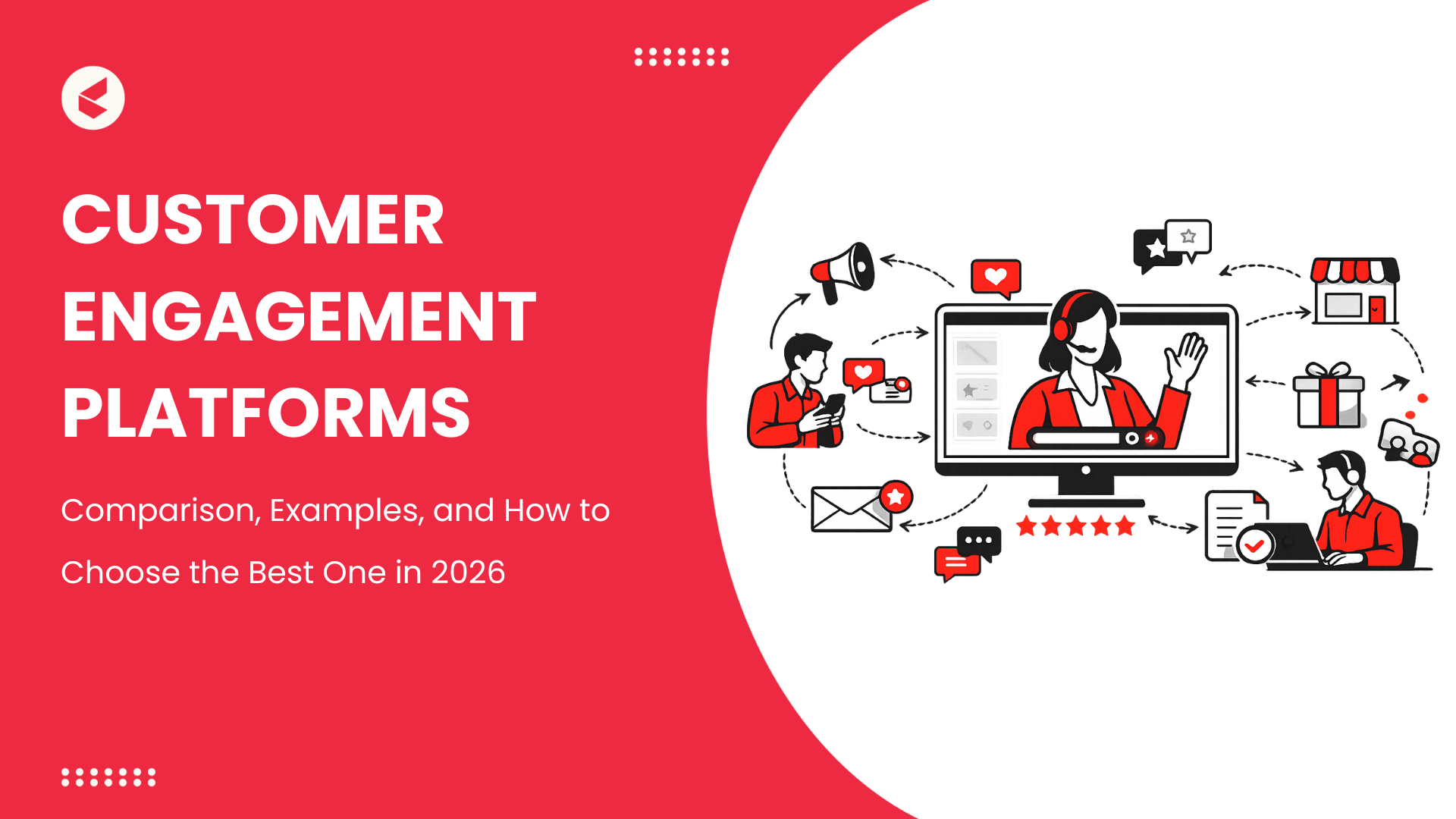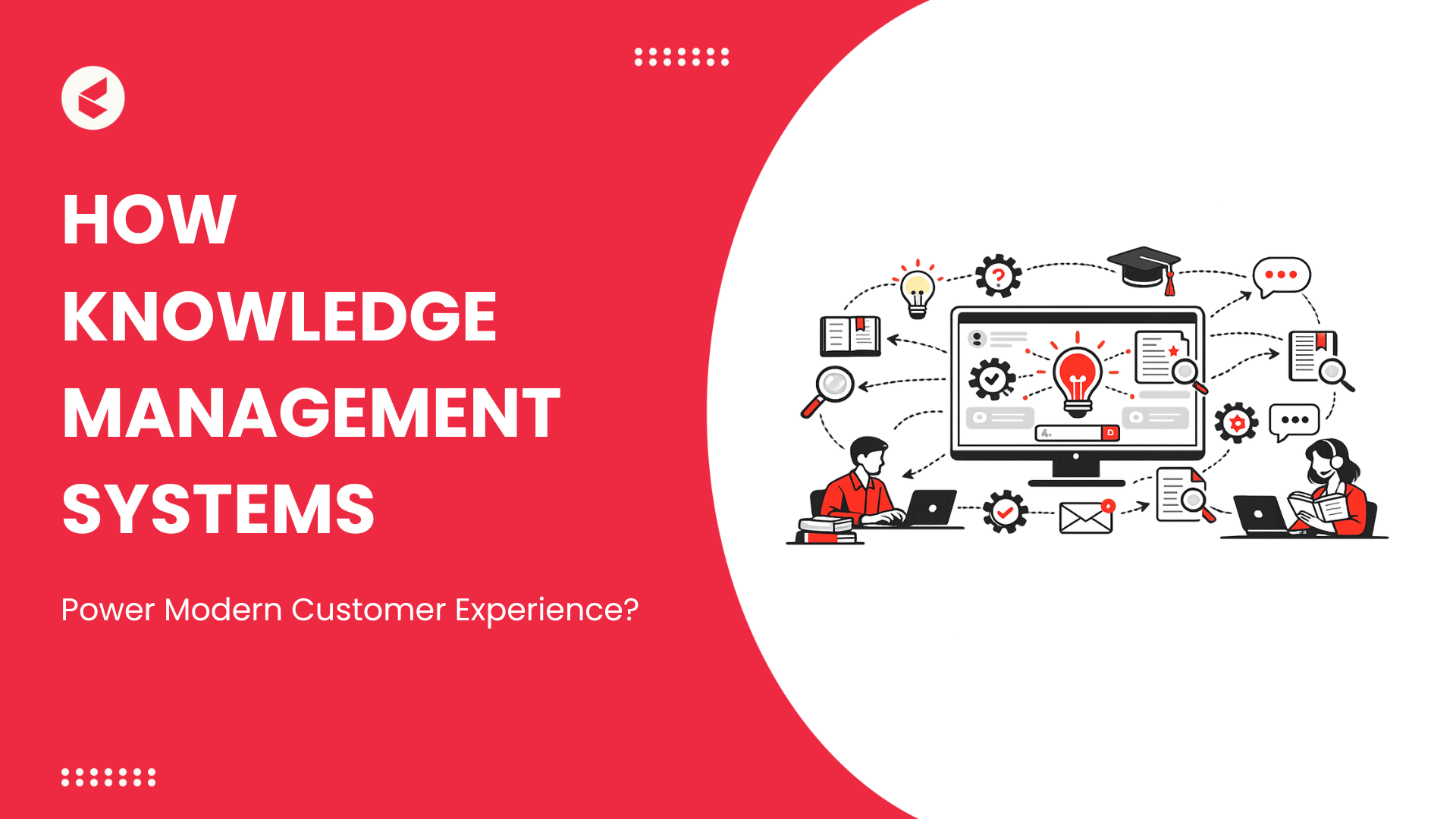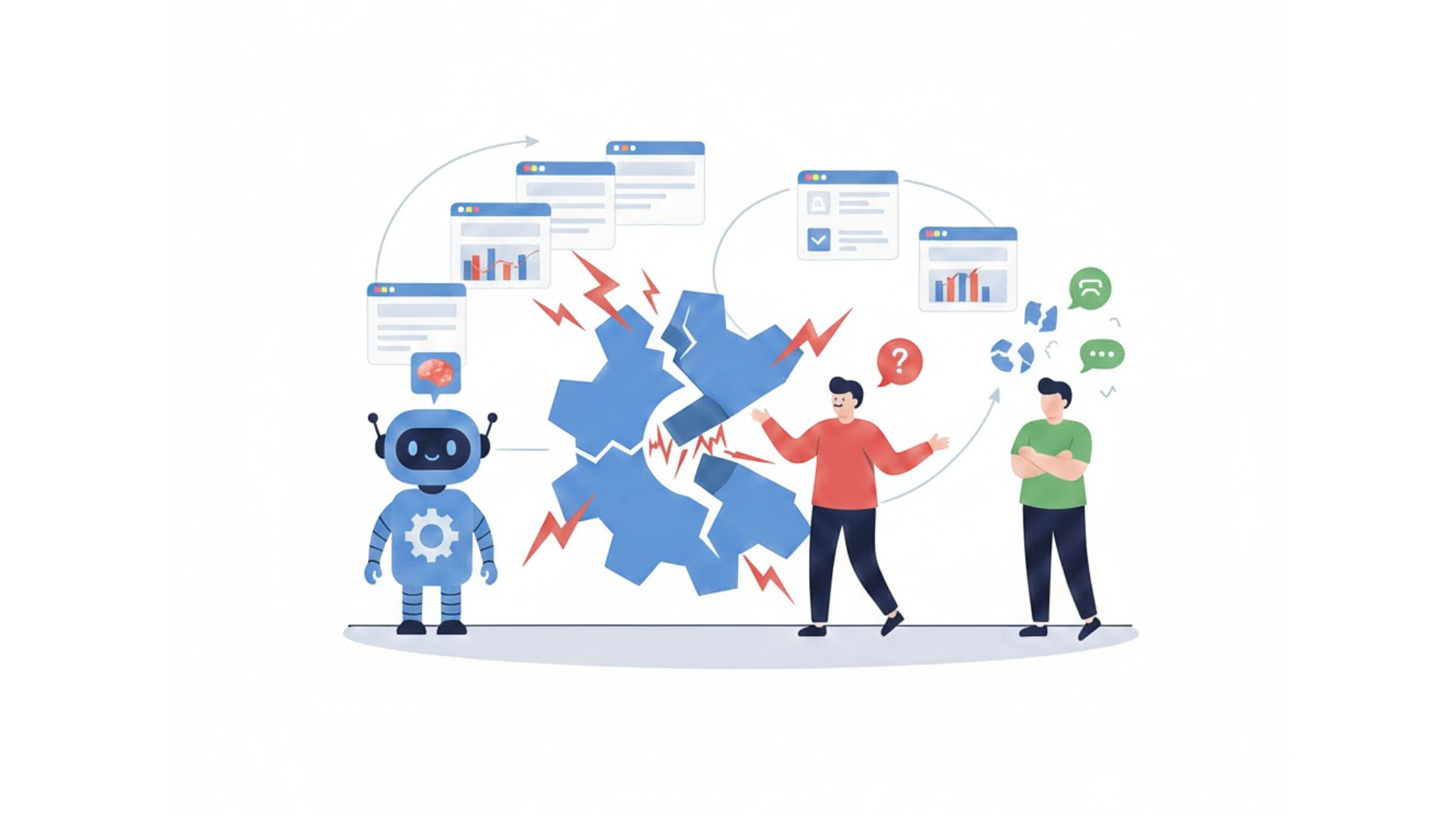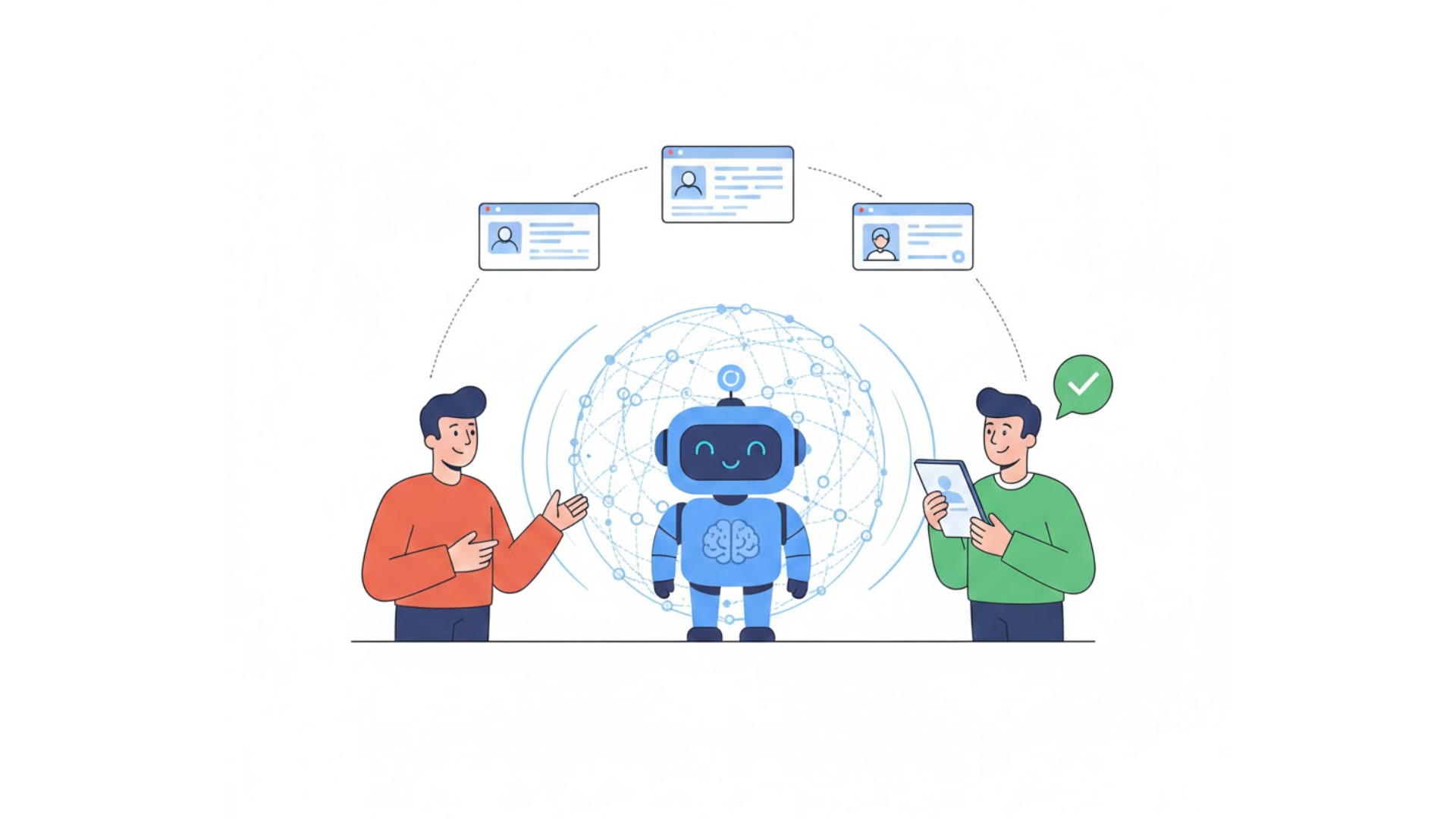A nurse oversees three patients, has a caregiver waiting, and addresses an urgent lab notification, all within minutes. Concurrently, a physician concludes a consultation, revises patient records, and collaborates with pharmacy personnel.
Close by, a front desk clerk manages in-person inquiries, handles insurance documents, and processes rescheduling demands from concerned families.
In healthcare, this isn’t unusual. It’s the norm. And in these moments, speed and accuracy are life-saving. This is where healthcare customer experience (CX) faces its greatest test: delivering clarity and compassion under pressure, with zero room for error.
Large Language Models (LLMs) are quickly becoming essential allies in this mission. Their ability to process natural language and respond intelligently at scale makes them powerful. According to Deloitte, 53% of U.S. consumers believe generative AI can improve access to care and reduce wait times.
The challenge lies in maintaining medical precision without losing the human touch. Your CX strategy must strike a careful balance. When implemented correctly, LLMs can support care teams, enhance patient satisfaction, and ensure compliance and consistency.
This blog explores how LLMs can transform healthcare CX when accuracy, empathy, and scale work in harmony.
Where LLMs Add Value in Healthcare Customer Support
Numerous healthcare questions need a doctor’s expertise. Numerous tasks are routine, repetitive, and high-volume, rendering them suitable for automation via LLMs. Utilizing LLMs for low-risk, non-diagnostic responsibilities enhances support operations while maintaining precision.
Here’s how they add value:
- Insurance and coverage queries: LLMs handle policy clarifications, co-pay details, and network checks instantly, significantly reducing call volumes.
- Setting up and rescheduling appointments: Patients often require modifications or confirmations of their scheduled visits. LLMs can provide assistance around the clock, improving the speed of responses.
- Post-consultation reminders: From medication plans to follow-up directives, LLMs can deliver prompt, tailored notifications, decreasing patient attrition.
- Discharge inquiries and billing assistance: Patients frequently depart with uncertainties regarding discharge procedures, charges, or follow-up care. LLMs can offer instant, reliable answers.
Why this matters for your support team:
- Improved efficiency: Your agents are free from repetitive tasks and can focus on complex, high-empathy issues.
- Consistent responses: LLMs ensure that every patient receives clear, policy-aligned information without variation.
- Scalability: As patient queries increase, you don’t need to expand your team. Your LLM handles the load.
Platforms like Kapture CX integrate AI with enterprise-grade workflow automation. You can triage queries, route tasks, and maintain an audit trail in one place. It’s built to keep your support system fast, compliant, and connected.
In a field where time and trust are critical, LLMs help you deliver both at scale.
The Fine Line: Accuracy vs. Human-Like Tone
Healthcare conversations are different. You’re not just answering questions; you’re supporting people during uncertain, emotional moments. But here’s the challenge: unlike general customer support, healthcare communication must be precise, measured, and compliant.
Large Language Models (LLMs) are trained to sound conversational. But in healthcare, sounding “friendly” isn’t always enough, and sometimes, it can even be risky.
Why does tone need control in healthcare CX?
- False reassurance can harm: If an LLM casually says, “That sounds normal,” without clinical backing, it could delay care.
- Hallucinations are dangerous: AI “hallucinations”, where the model makes up facts, pose serious legal and ethical risks in healthcare settings.
- Empathy must not compromise accuracy: Patients need to feel heard, but not misled.
That’s where grounding becomes essential. Grounding means anchoring LLM responses to trusted, pre-approved medical data sources. This could include:
- Government healthcare portals (e.g., CDC or FDA guidelines)
- Regulator-approved content libraries
- Internal hospital knowledge bases
You also need layered safety mechanisms like:
- Disclaimers: Every non-clinical response should be followed by a clear, visible notice — “This is not medical advice.”
- Human fallback systems: LLMs should know when to stop and hand over to trained agents. This prevents automation from crossing safety boundaries.
In short, sounding human isn’t enough. You must build a system where AI delivers consistent support without overstepping. With the right checks, you can achieve speed and empathy without compromising accuracy.
Building Guardrails for Healthcare LLMs
To deploy LLMs safely in healthcare CX, you need robust guardrails, not just to prevent errors, but to build trust. These aren’t optional. They’re essential to maintaining compliance, tone, and control.
Here are key mechanisms:
1. Retrieval-Augmented Generation (RAG)
RAG connects the LLM to a real-time, curated knowledge base. Instead of generating responses from memory, the model “retrieves” relevant, approved information. This limits hallucinations and ensures content accuracy.
2. Intent filters and classification layers
Before the model responds, it must assess what the user actually needs. If the question sounds diagnostic (“What should I take for this pain?”), it should:
- Flag the query
- Display a disclaimer
- Escalate to a human agent
This filtering layer keeps the LLM within its intended scope.
3. Escalation triggers and fallback flows
Sensitive phrases like “chest pain,” “suicidal,” or “side effects” should instantly trigger handoff protocols. These are non-negotiable safety steps.
You can set:
- Escalation trees for each trigger
- Real-time routing to certified agents or nurses
- Role-based access for handling flagged cases
4. Fine-tuning on regulator-approved datasets
General LLMs aren’t built for healthcare. Fine-tuning them on content from HIPAA-compliant, FDA-approved, or country-specific sources ensures legal protection.
Kapture does not use real patient data to train or fine-tune these models. Instead, we generate high-fidelity synthetic data that mimics clinical scenarios while ensuring privacy protection.
This reflects our commitment to patient confidentiality and adherence to data protection standards.
5. Output moderation and tone calibration
Every LLM-generated message should be screened for tone, clarity, and bias. You can use:
- Sentiment analysis tools
- Tone-match libraries aligned with your brand voice
- Human-in-the-loop (HITL) review cycles for high-risk responses
Within healthcare, your LLM is more than technology. It’s woven into the care experience. With smart architecture and safety nets, you protect both your patients and your brand.
Beyond Compliance: Creating Better Patient Experiences
You already know compliance is a must. But meeting regulatory standards is just the baseline. The real opportunity with healthcare-focused LLMs lies in creating smoother, safer, and more human support experiences.
When patients contact your support team, most don’t need clinical advice. They’re asking about:
- Test result timelines
- Insurance paperwork
- Appointment rescheduling
- Pre-visit instructions
These non-critical queries don’t need a nurse or doctor. But if left unresolved, they still create frustration.
Here’s how LLMs help elevate care experiences:
- Faster first responses: AI agents handle repetitive, low-risk queries in seconds—no long hold times or missed callbacks.
- “Always-on” care conversations: Patients often reach out after hours. With LLMs, your support stays active 24/7 without extra staffing costs.
- Personalized, yet compliant replies: Smart prompts and pre-validated responses keep messages warm but within safety guidelines.
- Long-term trust through consistency: When every patient receives timely, accurate support, it builds confidence in your brand and care quality.
- Reduced load on frontline teams: By automating routine queries, you free up medical staff and human agents to focus on complex care needs.
What was once theoretical is now gaining momentum at an impressive pace. The global AI in healthcare market surged from $14.9 billion in 2024 to $21.7 billion in 2025, and it’s expected to skyrocket to over $110 billion by 2030, growing at a powerful 38.6% annually (MarketsAndMarkets). The momentum is real, and so is the opportunity to lead.
When AI supports the full experience, not just compliance, you create healthcare CX that’s scalable and deeply human.
How Kapture CX Powers Healthcare-Ready AI Agents
Healthcare support demands more than generic automation. You need AI agents that understand the domain, follow protocols, and know when to escalate.
Kapture CX is built for this reality. It powers intelligent, HIPAA-ready AI agents that enhance both speed and safety in healthcare conversations.
Key capabilities of Kapture’s AI Agent Suite:
- Healthcare-specific workflows: From appointment scheduling bots to insurance FAQs, every AI flow can be tailored to healthcare needs.
- HIPAA-compliant architecture: Deploy AI agents that respect patient privacy with built-in controls for data security.
- Retrieval-Augmented Generation (RAG) pipelines: Your AI agents reference vetted sources for billing codes, claim processes, and care plans, reducing errors and hallucinations.
- Voice + Chat support: Whether patients call or text, your AI agents deliver consistent answers across channels, without losing tone or intent.
- Agent Assist tools: Human agents receive safety-aware summaries, patient context, and prompt suggestions, enabling them to respond more quickly and effectively.
- Dynamic fallback: When queries exceed the AI’s scope, the conversation instantly escalates to a live agent with full context handover.
Why this matters for you:
With Kapture, you’re not just using AI; you’re building smarter healthcare workflows. Your AI agents are tuned to your protocols, tone guidelines, and escalation policies.
Example: A patient asks about claim status. Instead of redirecting to a PDF, your AI agent pulls the latest update from your billing system, presents it clearly, and flags missing data.
Kapture ensures every interaction, whether chat, voice, or hybrid, delivers clarity, speed, and care. You get precision where it counts and empathy where it matters.
The Human-AI Health Partnership
LLMs are not here to replace medical professionals but to support your patient interactions where it matters most.
With the right constraints in place, AI can:
- Answer routine questions faster
- Reduce load on care staff
- Offer always-available assistance
- Keep messages safe and easy to understand
You’re not using AI to diagnose; you’re using it to inform, reassure, and engage patients better. When patients feel understood, they trust your service more. When they get consistent, relevant answers, satisfaction goes up. You create smoother journeys, from appointment scheduling to follow-up support.
That’s the real benefit: better healthcare outcomes through better experiences.
In this new era, human empathy and AI don’t compete. They collaborate. And when you get the balance right, both your teams and your patients benefit.
Turn patient questions into confident answers with healthcare-ready AI flows, powered by Kapture!
FAQs
They rely on vetted data sources, strict content filters, and fallback protocols to ensure only safe, validated responses are shared with patients.
Yes. With fine-tuned models, AI agents can manage multilingual conversations, helping you serve diverse patient populations without extra staffing or delays.
Agent Assist gives live reps smart suggestions, summaries, and context. This shortens response times while maintaining medical accuracy and a patient-friendly tone.















